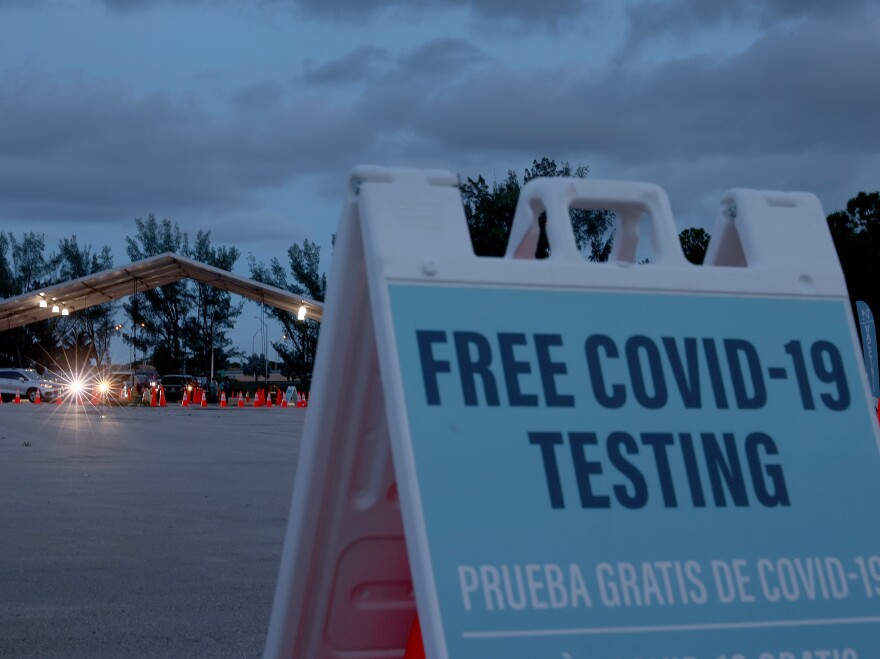The Center for COVID Control started as a small COVID-19 testing company in Rolling Meadows, Illinois. After its owner’s axe-throwing lounge was shut down due to rising coronavirus cases, he pivoted and started offering rapid and PCR tests. After a few months, he and his wife had locations all over the country.
The Center for COVID Control grew to 300 sites across the U.S., including four in St. Louis. But as an article from Block Club Chicago makes clear, the complaints about the pop-up site near Ballpark Village were only the tip of the iceberg.
As Breaking News Editor Kelly Bauer reported, tests piled up unrefrigerated in the company’s headquarters. Others were sent to the lab even after the samples had died. Some people reported getting results emailed to them while they were still in line waiting to be tested.
Two weeks ago, the FBI raided the company’s headquarters. Facing lawsuits from at least two states, it’s since shut down entirely.
Bauer said she started looking into the company after hearing concerns from people who were tested at its sites.
“It started off with just complaints about the pop-ups — things like workers not wearing masks or gloves,” Bauer said. “And especially people not getting results at all, or getting results that were delayed or even getting results that didn't make sense to them. Like they would test negative at the Center for COVID Control, then positive at a place they went to the same day.”
Bauer reported that company owners Akbar Syed and Aleya Siyaj brought in millions of dollars. In part by falsely attesting that people had no insurance, allowing them to bill the government for tests, she wrote, they eventually garnered $155 million.
And they didn’t try to hide it.
“When I was on his TikTok, there were all these videos and photos of luxury cars and a huge mansion and even him buying his wife a golden iPhone,” Bauer said.
She added that Syed was upfront about where his wealth was coming from.
“In the comments of these, people would ask him, ‘How are you making this money? What are you doing? How are you so successful?’” Bauer said. “And again, and again, he would write back ‘Testing sites, I own testing sites, I own a lab — it’s COVID money.’”
Bauer found little oversight of the company and its competitors, as pop-up testing sites like the ones opened by the Center for COVID Control aren’t regulated by local health departments. Additionally, the two owners didn’t seem to have medical experience.
“Before the pandemic, they had run axe-throwing lounges, but they didn't really have a strong healthcare background,” she said. “The husband who's one of the founding members of the company had also done a wedding video business.”
Bauer said she and her fellow reporters tried to contact the owners — even having people show up to their house — but Syed and Siyaj didn’t agree to interviews. After journalists seized on their social media posts, their TikTok accounts vanished and their Facebook profiles went private.
Bauer noted that the company is not the only suspicious testing company cashing in recently. Shed has published stories about two additional COVID testing companies with similar issues. Both are also Chicago-based with locations around the country.
“This really points to a larger issue. All together, these three places had hundreds of testing sites in the United States, and have received more than $500 million from the federal government,” Bauer said. “There's just a distinct lack of regulation and laws about how these pop-ups should operate.”
“St. Louis on the Air” brings you the stories of St. Louis and the people who live, work and create in our region. The show is hosted by Sarah Fenske and produced by Alex Heuer, Emily Woodbury, Evie Hemphill and Kayla Drake. Jane Mather-Glass is our production assistant. The audio engineer is Aaron Doerr.





